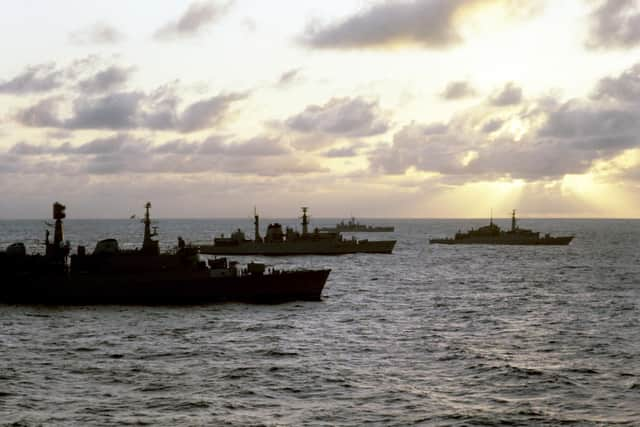Why Britain sent a task force to liberate the Falkland Islands
But within days of their invasion by Argentinian forces, a task force had set sail to reclaim them, bolstered by the support of the vast majority of the British public.
According to Dr Rachel Utley, Associate Professor of International History at the University of Leeds, the sovereignty of the islands had long been contested.
Advertisement
Hide AdAdvertisement
Hide AdShe said: “ Disputes between Britain and Spain, and the claims of Argentina after its formation in the early nineteenth century, led to Britain reasserting control over the islands in 1833 and establishing the Falkland Islands as a Crown colony in 1840.


“This status was regularly, if not consistently, contested by Argentina thereafter. By the 1960s the matter was routinely raised in the United Nations, and successive British governments engaged in negotiation with Argentine governments over the status of the Falkland Islands and the question of sovereignty.”
The opinion of the Falkland Islanders, almost all of British heritage, was overwhelmingly in favour of maintaining British sovereignty.
Dr Utley added: “However, the apparent willingness of successive British governments, Conservative and Labour from Heath to Thatcher, to consider other options, such as a 'leaseback' arrangement to transfer sovereignty back to Argentina, essentially abdicating responsibility for the Falkland Islands in the longer term, caused great suspicion. Falkland Islanders were particularly effective at rallying parliamentary support in the UK against such an outcome, and the clarity of the islanders' wishes further constrained Britain's diplomatic possibilities. Evidence that the British public much cared one way or the other before the invasion is scarce.”
Advertisement
Hide AdAdvertisement
Hide AdHowever, after the the invasion, public opinion was consistently in favour of the military operation to regain the Falkland Islands and to restore British sovereignty.
She added: “For example, in the fortnight after the invasion, a landmark poll for The Economist (14 April) indicated that while a majority was unhappy with the way the government was 'running the country' (34% satisfied; 58% dissatisfied), and similar numbers were unhappy with Margaret Thatcher as Prime Minister (40% satisfied; 54% dissatisfied), a clear majority was happy with the government's handling of the Falklands crisis (60% satisfied; 30% dissatisfied).
“Bear in mind that the invasion took place on 2 April 1982; the first elements of the Task Force set sail three days later, with subsequent departures from Portsmouth - including civilian cruise liners requisitioned for the purpose - cheered off by flag-waving crowds. Support for the Task Force, and for the naval blockade of the Falkland Islands, remained at over 80% in April and May - there was a range of support for other military measures - and by the end of the war, support for retaining British sovereignty over the islands was at 86%.”
But why did Argentina decide to stage an invasion in early 1982? The answer partly relates to pressures inside Argentinian politics.
Advertisement
Hide AdAdvertisement
Hide AdDr Utley said: “Argentina had been under military rule since 1976. Economic mismanagement, human rights abuses, and popular discontent all grew. The military junta became divided, and General Galtieri assumed the presidency of the country in December 1981 having overthrown his predecessor.
“In the context of the longstanding dispute with the UK over the Falklands' sovereignty, and with the approaching 150th anniversary of the events of 1833, retrieval of the islands for Argentina could offer a rallying point for the struggling regime. Planning to that end is now known to have begun in January 1982. The actual timing of the invasion was decided late in March, probably following a stand-off between Britain and Argentina over the arrival of Argentine scrap-metal merchants in South Georgia in the middle of the month. “
“Undoubtedly, Margaret Thatcher's political reputation was embellished in the 1980s as a result of British military victory,' said Dr Utley. "Supporters have continued to applaud this facet of her premiership, and it was much in evidence at the time of her death in 2013."
